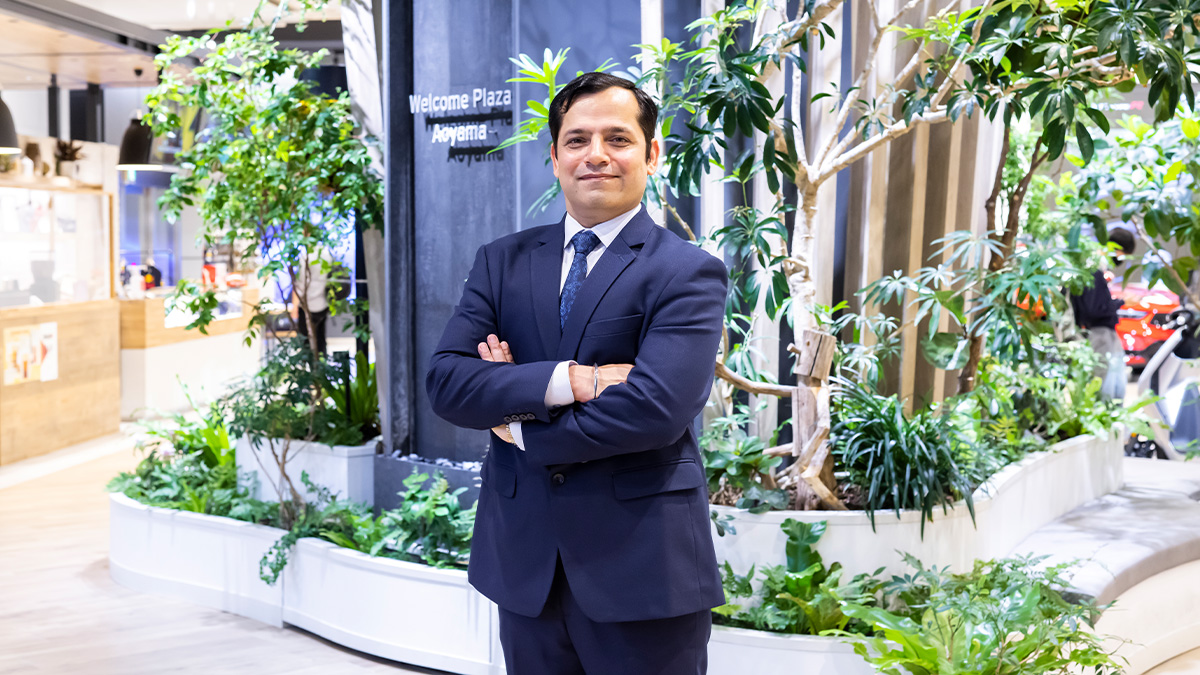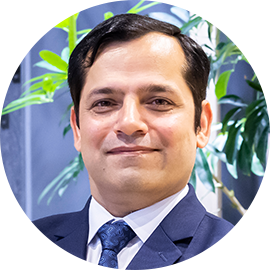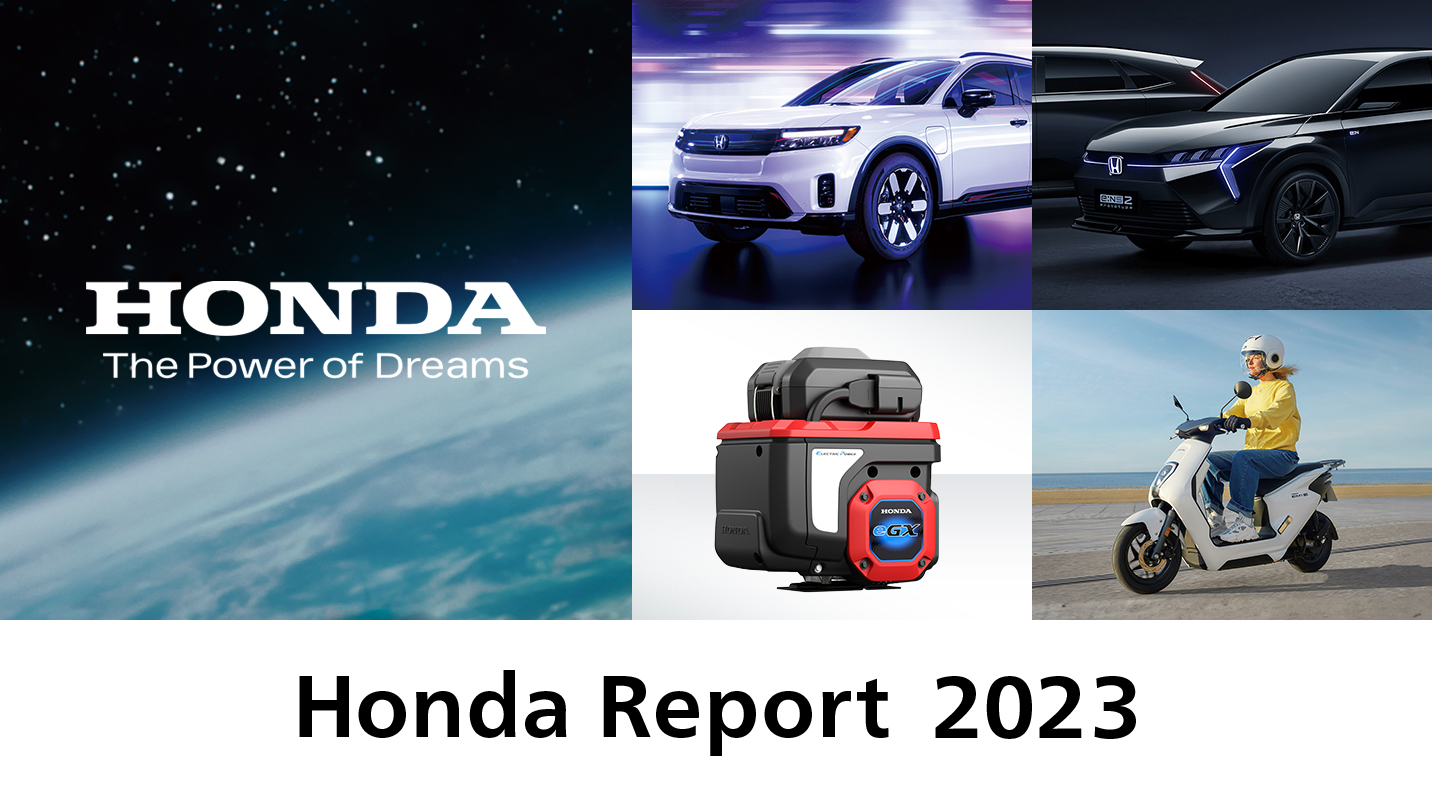Innovation
(Original issue date: October 9, 2023)
Making Honda Truly Global - Recognizing and Nurturing Diverse Talent from Around the World

Index
Jitender Teckchandani started his career at Honda from a Honda subsidiary in India. He has been consistently involved in the HR field for 20 years, working to improve associate engagement and efficiency in the Asia-Pacific region, and is currently involved in selecting and nurturing the next generation of leaders on a global scale. Jitender shares his thoughts about Honda's philosophy, the rewards of working in human resources, and his vision for the future of the company.

Lead of Global Learning and Development, Talent Management Department, HR Division
Jitender Teckchandani
After beginning his career at HCIL, a Honda subsidiary in India, and thereafter working for Asia Pacific regional office at Asian Honda, Teckchandani is now in his current position. He has been consistently involved in the HR field.
Continued with Honda for two decades because it’s a philosophy driven company.
- You began your career at Honda Cars India Ltd. (HCIL), Honda’s subsidiary in India. What is the story behind you joining Honda?
TeckchandaniIn India, the City, a compact car manufactured by Honda is famous, and I was attracted to the brand, which was the reason I joined. After that, I was assigned to Asian Honda, the regional headquarters for Asia and Oceania, and then to Global office at Japan.
I have been with Honda for around two decades now, and to be honest, when I first joined the company, I did not expect to work here for such a long time. In India, people change jobs every three or four years, so I thought it was just another step to move on to the next phase of my career.

- Why did you decide to build your career at Honda instead of leaving?
TeckchandaniI was given a new position every three or four years, so the main reason I stayed was that I could always try something new and exciting with a fresh mindset. During this tenure, I worked with great leaders who cared about my career and provided guidance which played a significant role in my personal and professional development. I was equally fortunate to get strong and competent team members who supported me to achieve challenging feats.
The second reason is that Honda is a philosophy driven company. Every company has its corporate philosophy, but it is usually just a poster on company walls. On the other hand, Honda’s philosophy has been passed down from generation to generation, and practiced regardless of position or country. Whenever I find myself at a loss in my work, I reread Honda's philosophy, and the direction in which I should head becomes clear to me.
- What does your work in talent management involve?
TeckchandaniMy department is now marching on the mission of selecting and nurturing the next generation of leaders on a global scale, to place the right people in the right positions.
Since our team is still small, we are currently focusing on top-level positions. In the future, we will gradually expand to other levels to ensure strong talent pipeline of future leaders, and fostering a culture of succession planning and talent mobility across different regions and functions.

People are Honda’s Real Assets
- What are the moments that make you feel Honda's philosophy is being put into practice?
TeckchandaniThe first thing that surprised me was that all employees, regardless of job level, wear white work uniforms at all the factories around the world, including those in Japan. In addition, in my previous company, lunch rooms on different floors and food quality were separated by job level. But at Honda, we all eat same food at same place while talking with our team members and supervisor. Additionally, the workstations are same without any cubicles. In this way, I feel that the philosophy of equality is put into practice in various situations.
Honda also has a strong philosophy of respect for individual, which is based on pillar of mutual trust. I have never seen any harassment such as yelling or humiliation within the company, and everyone, whether junior or senior, is addressed politely with suffix of “-san”.
- Over the past twenty years, which project had a strong impression on you?
TeckchandaniIn the recent past, the most challenging and exciting project I did was “Reform of evaluation and salary system” at Asia and Oceania (A&O) region. When I was at Asian Honda, we conducted an associate engagement survey in 2018 for 32 Honda subsidiaries in twelve countries in A&O, and realized that “reward & recognition” is the least satisfaction parameter.
In fact, at that time, many Honda locations, regardless of country or culture, decided salaries based on the assumption of lifetime employment and seniority, as is customary in Japan. However, since job-hopping is common in the Asian region, this did not allow for a fair evaluation and subsequent reward. We therefore reformed the system shifting from a “Pay for person & experience” approach to a “Pay for Role, responsibility, and performance” framework. It was a delicate and big challenge, but as a result of continuous improvement and negotiation, we were able to change the associate evaluation and salary system. It was my biggest challenge, and I am convinced that it was a great success, as the implementation rate in the Asian region is now 98%.

- What do you find most rewarding about working in human resources?
TeckchandaniTo run an enterprise successfully, we need to focus on 3 resources :
1. People 2. Product 3. Money
Out of 3 resources, product and money are limited but people have limitless capability, and therefore I believe that people are a company's most important asset. Although managing people, who are more complex than machines, is a herculean task, but with proper feedback, training, and motivation, people's behavior can be channelized in right direction. I think that is the appeal of working in HR, and through our human resource development, associates can improve their skills and create a foundation for the company to grow rapidly. I find this work challenging yet rewarding.
Diversity is Vital to a Truly Global Company
- What kind of company do you like Honda to be in the future?
TeckchandaniMy dream is that every associate in Honda is empowered to reach their full potential and contribute using their unique talents to the organization's success. The working environment at Honda encourages associates to freely showcase their capabilities and fosters a positive and stimulating atmosphere.
However, there is a strong need for improvement in terms of diversity within Honda's human resources, particularly in critical global positions. Currently, a significant number of these roles are occupied by Japanese male members, which may create a perception of limited growth opportunities for non-Japanese and female members.
By involving diverse talent, I wish to change above situation and further strengthen the understanding of importance of embracing diversity, cultural intelligence, inclusive work environment and global collaboration. This will bring a holistic perspective to key management decisions and ultimately will lead to the development of products and services that align with the needs and preferences of our global customers.
- Finally, what is the dream you would like to realize at Honda?
TeckchandaniMy dream is very simple. I want to “Grow with the company”. Here, I will put emphasis on company growth first. I want Honda to emerge as a true global organization that attracts the best and most diverse talent from around the world who are aligned with Honda's vision and core philosophy.
By self-growth, I wish to have new experiences and develop new skills or attitudes which I believe will have a positive impact on my life and make me a better human being.

- Honda Stories
- Innovation
- Making Honda Truly Global - Recognizing and Nurturing Diverse Talent from Around the World
